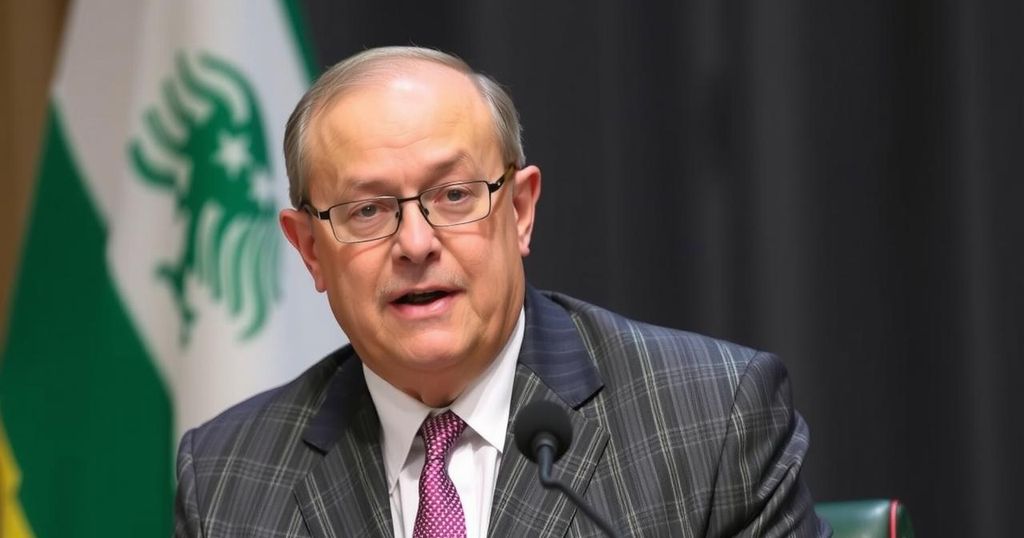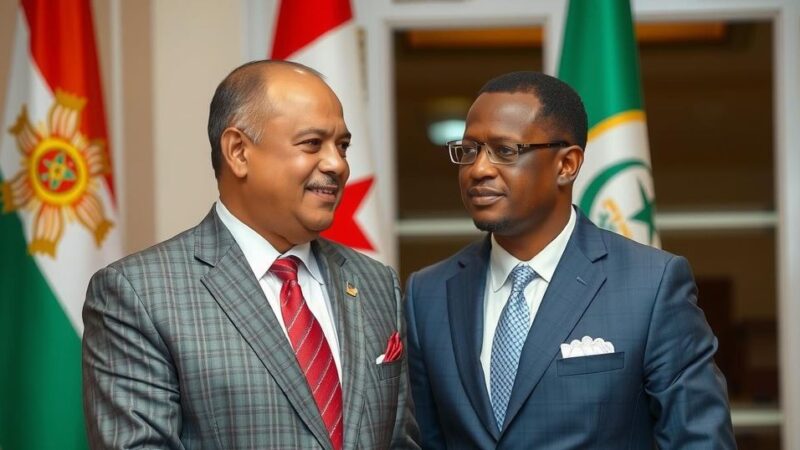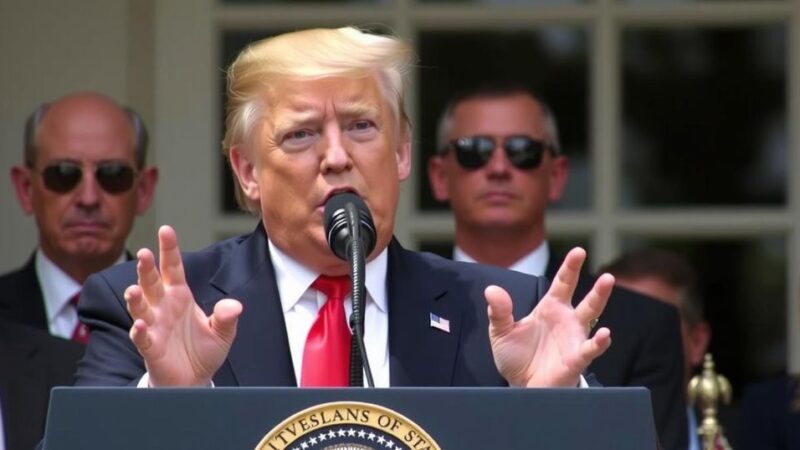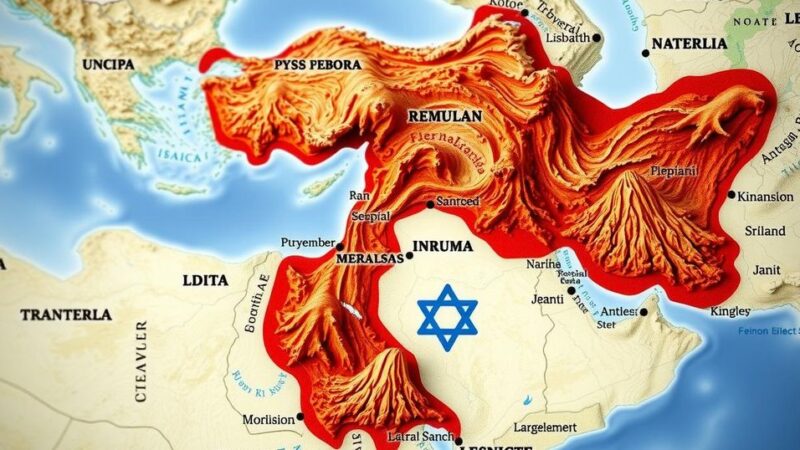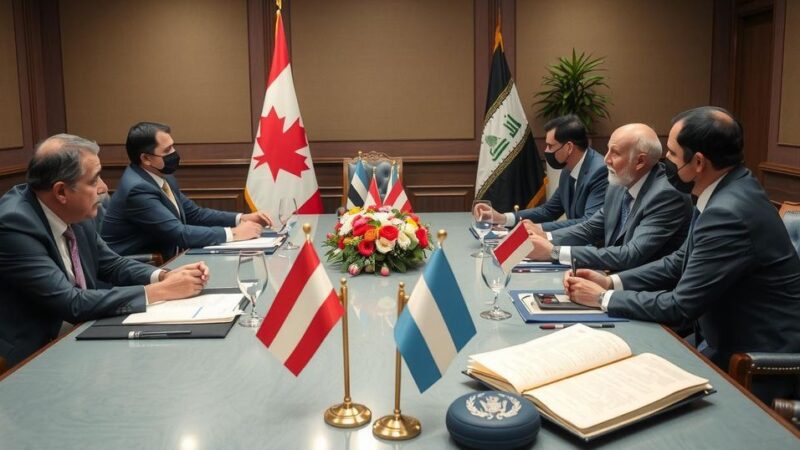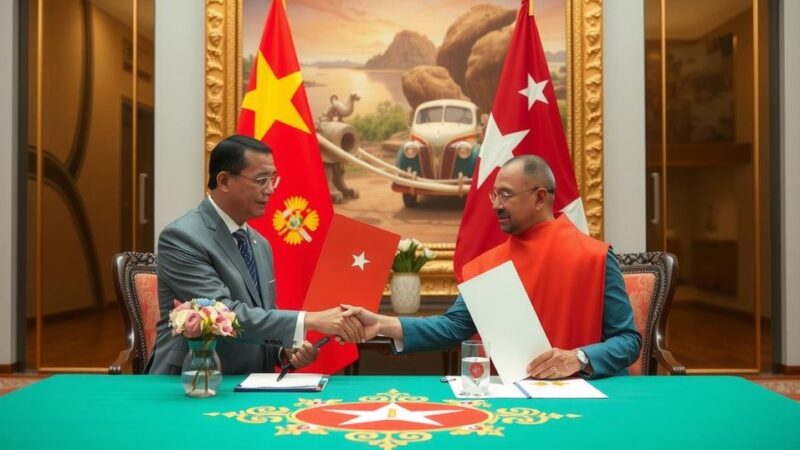Egyptian Foreign Minister Badr Abdelatty emphasized the need for a Lebanese consensus to resolve the presidential vacuum in Lebanon, free from external influences. The Lebanese Parliament is set to convene on January 9 for a presidential vote, amidst significant political challenges and a recent ceasefire with Israel. The failure of past parliamentary sessions to elect a president highlights the critical need for internal unity among Lebanon’s various political factions.
On Tuesday, Egyptian Foreign Minister Badr Abdelatty asserted the necessity of a Lebanese consensus to resolve the ongoing presidential vacuum in Lebanon, advocating for a solution free from external influences. This declaration was made during a discussion with Jean-Yves Le Drian, the French President’s Special Envoy to Lebanon, focusing on the forthcoming parliamentary session scheduled for January 9, aimed at electing a new president.
Abdelatty emphasized the importance of empowering Lebanese national institutions and confirmed Egypt’s commitment to support Lebanon during this pivotal period. Lebanon has experienced a presidential void since October 2022, following the conclusion of former President Michel Aoun’s term. The Lebanese Parliament has undertaken 13 sessions over two years without successfully electing a new president, largely due to a lack of consensus among political factions.
In conjunction with the ongoing crisis, Lebanese Parliament Speaker Nabih Berri reiterated a call for the parliamentary session to convene, aiming to address the presidential vacancy. This urgency comes as Lebanon grapples with multiple challenges, including a ceasefire with Israel. Berri has previously characterized the conflict with Israel as one of the most perilous periods in Lebanon’s history, urging for the election of a president that unifies rather than divides.
The electoral process requires a quorum of 86 members in the 128-seat parliament, with candidates needing 65 votes in the first round or a simple majority thereafter. The importance of this election is underscored by political leaders, including Walid Jumblatt, who reaffirmed support for Army Commander General Joseph Aoun as their candidate. The Lebanese Forces party has also called for the election, viewing it as essential for restoring state responsibilities and governance.
As Lebanon approaches the January 9 session, the political landscape remains precarious, with the need for a cohesive consensus among various factions paramount for a successful resolution to the presidential vacancy.
The article addresses the political impasse in Lebanon concerning the presidential election, which has remained unresolved since the term of former President Michel Aoun expired in October 2022. The failure to elect a new president stems from a lack of consensus among political factions in the Lebanese Parliament, which consists of 128 seats. The upcoming session scheduled for January 9, 2024, is critical, as it represents the latest attempt to fill this leadership void amidst ongoing national challenges, including the recent ceasefire with Israel. Egypt’s involvement signifies regional interest and support for Lebanon’s internal political processes, highlighting the broader implications of Lebanon’s political stability for regional peace and security.
In conclusion, Egypt’s call for a Lebanese-led resolution to the presidential crisis underscores the importance of domestic consensus in addressing Lebanon’s political vacuum. As the Lebanese Parliament prepares for the pivotal January 9 session, the absence of a president poses significant challenges to governance and stability. The ongoing political negotiations are crucial, as they will determine Lebanon’s future direction amid current regional tensions.
Original Source: www.dailynewsegypt.com

